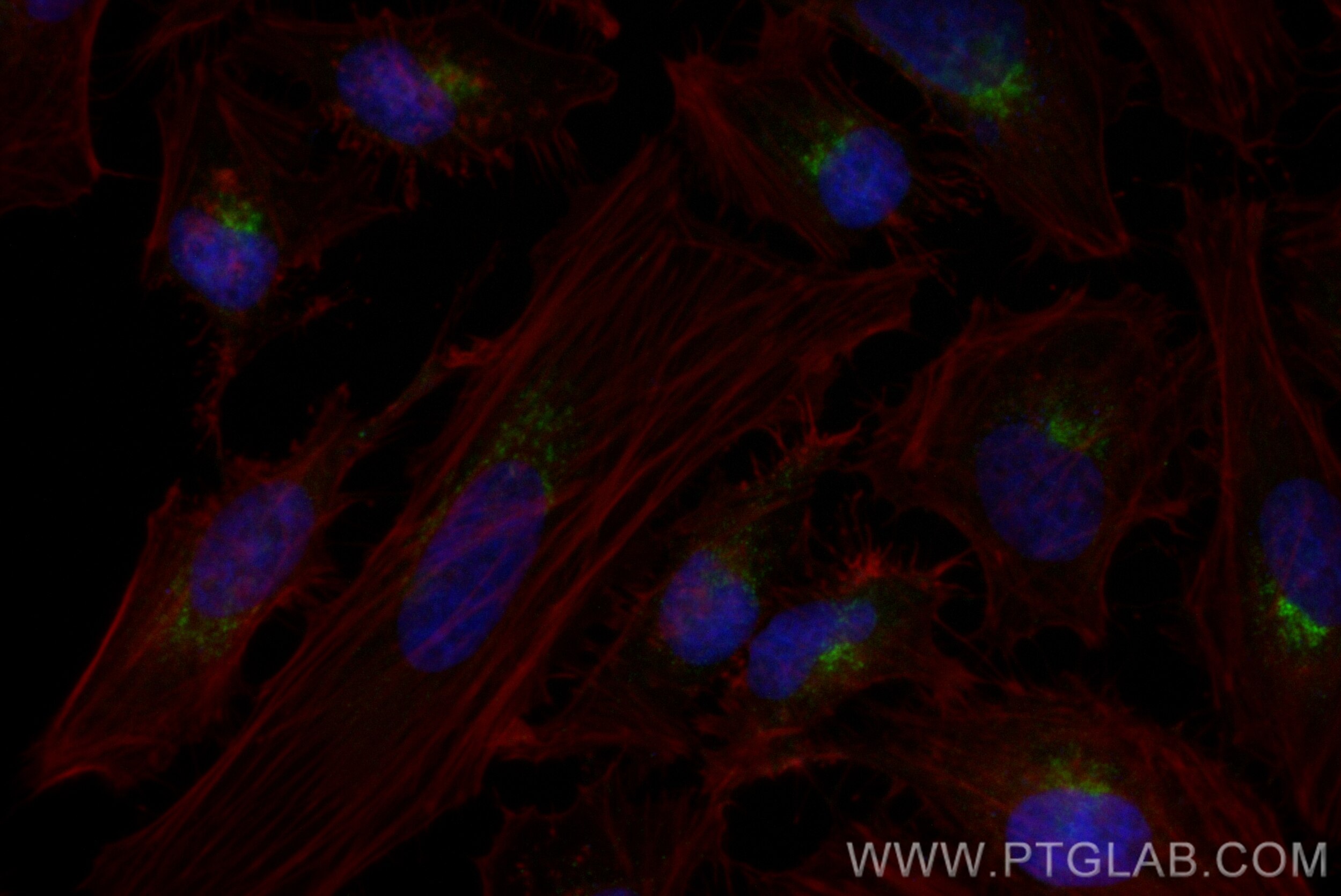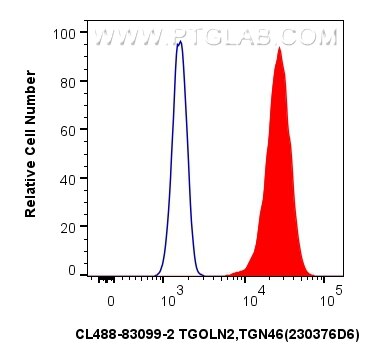Tested Applications
| Positive IF/ICC detected in | HeLa cells |
| Positive FC (Intra) detected in | HepG2 cells |
Recommended dilution
| Application | Dilution |
|---|---|
| Immunofluorescence (IF)/ICC | IF/ICC : 1:50-1:500 |
| Flow Cytometry (FC) (INTRA) | FC (INTRA) : 0.40 ug per 10^6 cells in a 100 µl suspension |
| It is recommended that this reagent should be titrated in each testing system to obtain optimal results. | |
| Sample-dependent, Check data in validation data gallery. | |
Product Information
CL488-83099-2 targets TGN46 in IF/ICC applications and shows reactivity with human samples.
| Tested Reactivity | human |
| Host / Isotype | Rabbit / IgG |
| Class | Recombinant |
| Type | Antibody |
| Immunogen | TGN46 fusion protein Ag4470 Predict reactive species |
| Full Name | trans-golgi network protein 2 |
| Calculated Molecular Weight | 447 aa, 47 kDa |
| Observed Molecular Weight | 90-100 kDa |
| GenBank Accession Number | BC028219 |
| Gene Symbol | TGN46 |
| Gene ID (NCBI) | 10618 |
| RRID | AB_3673189 |
| Conjugate | CoraLite® Plus 488 Fluorescent Dye |
| Excitation/Emission Maxima Wavelengths | 493 nm / 522 nm |
| Form | Liquid |
| Purification Method | Protein A purification |
| UNIPROT ID | O43493 |
| Storage Buffer | PBS with 50% glycerol, 0.05% Proclin300, 0.5% BSA, pH 7.3. |
| Storage Conditions | Store at -20°C. Avoid exposure to light. Stable for one year after shipment. Aliquoting is unnecessary for -20oC storage. |
Background Information
TGN46 (TGOLN2), the human homologue of rat Tgn38, is a transmembrane glycoprotein predominantly localized to the TGN (trans-Golgi network). TGN is a major secretory pathway sorting station for proteins and lipids. TGN46 may be involved in regulating membrane traffic to and from TGN. Alternatively spliced transcript variants encode different TGN46 isoforms. TGN46 has an apparent molecular mass of 100-150 kDa, suggesting extensive O- and N-glycosylations.
Protocols
| Product Specific Protocols | |
|---|---|
| IF protocol for CL Plus 488 TGN46 antibody CL488-83099-2 | Download protocol |
| Standard Protocols | |
|---|---|
| Click here to view our Standard Protocols |





